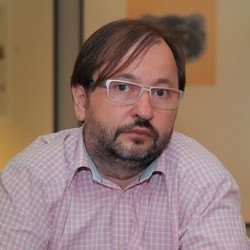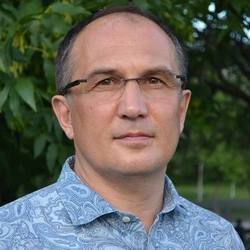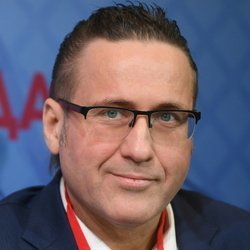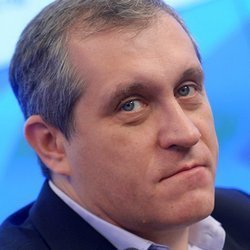“Plenipotentiaries are a vestige of the past, but...”: pandemic turns the vertical of power in Russia by 90 degrees
On this day 20 years ago, Sergey Kiriyenko was appointed Plenipotentiary Representative of the President of the Russian Federation in the Volga Federal District, thus launching the construction of the vertical of power in the Volga Region. Although Kiriyenko himself became one of the most influential Russian politicians, the institution of plenipotentiaries seems to have exhausted itself two decades later. This was stated by the majority of political analysts polled by Realnoe Vremya. This became especially noticeable during the April quarantine, when Vladimir Putin regularly held meetings directly with governors, and his envoys were not actually heard or seen. The vertical management model is a thing of the past, but it has not been fully fulfilled itself, experts believe. However, there are certain stars among “Putin's deputies” — but only those who are endowed with real powers.
“The place of employment for retired politicians”
The Institute of Presidential Plenipotentiaries in Federal Districts has been in crisis for several years, Mikhail Vinogradov, the president of the St. Petersburg Politics Foundation, told Realnoe Vremya. Today, it is, with rare exceptions, just a place of employment for retired politicians. Something like the Federation Council.

Political strategist Konstantin Kalachev agrees with him, who considers the institute outdated but, at the same time, notes the activity of the same Trutnev. In his opinion, Trutnev is actually an exception to the rule, he behaves very actively and influences the personnel policy in the Far Eastern Federal District. If you take Trutnev and his super-specific region out of brackets, no one else has any noticeable results. Just as surprising is the paradox: the Kremlin-appointed governors were not more effective than the elected leaders of regions 20 years ago.
“The institution of plenipotentiaries is the reverse side of distrust of governors. The bottom side of the assignment system. When regional leaders were elected in competitive elections, people could make mistakes. But look at the history of resignations of governors after the cancellation of elections — the question is, who makes more mistakes in the end? The population or the Kremlin? However, a third of the governor's corps had to be removed because they, in principle, were unelected. Some governors, who were recommended in the Kremlin, went on trial at all," Kalachev draws attention.
The system is conservative, respectable people do not want to lose their jobs

“The institute of plenipotentiaries is now a vestige of the past, but the system is conservative, respectable people do not want to lose their jobs. Then, Russian President Vladimir Putin believes in the importance of accounting and control, although it seems to me that control functions are performed by other institutes, no less, and perhaps more effectively. The institution of plenipotentiaries could have been eliminated painlessly long ago, and no one would even have noticed. But it won't happen!” Kalachev notes with regret.
The optimal model of the representative office has been implemented in the Far East
Of course, it will not happen, Yevgeny Minchenko, the president of Minchenko Consulting communications holding, agrees. Since in Russia, the government system is set up to increase the number of administrative establishments, rather than to reduce them. Therefore, Minchenko believes it is unlikely that the institution of plenipotentiaries will be abolished after the quarantine, when Putin more often and more directly communicated with the governors than with his own authorized representatives in the federal districts.
The expert also pays tribute to the effectiveness of Trutnev's management but notes that in his case, the official is not just a representative of the president but also the deputy prime minister, and he has more levers of influence: administrative, organizational, power and economic. This is an understandable story, the political expert believes. But as for the others...

The plenipotentiary representation can get a new function, if the trend in the consolidation of the regions will continue
Political expert and philosopher Boris Mezhuyev drew attention to Oleg Belaventsev — also more as an exception to the general rule of “ineffective plenipotentiaries”. Belaventsev, said Mezhuev, played a powerful role in Crimea and Sevastopol. But even in his case, this force and administrative weight played a bad joke on him — Belaventsev's office caused some tension in the annexed regions of the Russian Federation, as a result of which the Plenipotentiary mission in Crimea was cancelled at all.
With the exception of the figures such as Trutnev or Belaventsev, most of the plenipotentiaries in recent years have not taken and do not take any significant part in issues related to some regional topics, according to Mezhuyev, who at one time wrote a work on this topic (in 2000, his monograph 'The Governorship-General in the Russian system of territorial administration” was published). According to him, initially the institute of plenipotentiaries had two specific meanings. The first was in the federal centre's request for a certain consolidation of regions, which may not be outdated: based on the socio-economic and social situation in some regions, these trends will still manifest themselves today, he is sure, referring to the recent decision to merge the two regions of the federation.
Let us remind that on May 13, the governors of Arkhangelsk Oblast and the Nenets Autonomous Okrug Alexander Tsybulsky and Yury Bezdudny signed the Memorandum 'On the intention to form a new subject of the Russian Federation by combining Arkhangelsk Oblast and Nenets Autonomous District”. However, almost immediately the Kremlin stated that the assumptions about the upcoming mass enlargement of Russia's regions did not correspond to reality. However, the philosopher is sure that the trend towards merging regions will not be limited to Arkhangelsk Oblast alone, since the issue is related to the economic and budgetary problems of the Russian Federation's subjects. In matters of consolidation, of course, there must be some state control over such processes so that these processes are consistent with the overall regional context.
“Governors-General with Commissar functions” left out of business?
But there is a problem with the second meaning of the institution of the plenipotentiary, Mezhuyev says. Earlier — all the same 20 or 15 years ago — in addition to general issues, security issues, the plenipotentiaries also carried out a certain state policy of the Kremlin (Kiriyenko is just a vivid example of such figure).

“Before the pandemic, there was a feeling that the institution of plenipotentiaries was completely archaic and unnecessary. And it was worth cancelling, just as commissars were cancelled in the USSR at the time. Now, after the pandemic, the institution of the plenipotentiary, I do not rule it out, may be revived with some new functionality.
“But governors still need to be controlled”
Political expert and human rights activist Aleksey Martynov is not sure that the plenipotentiaries are not necessary at all — it's all about the vast spaces of the Russian Federation, which are not so easy to control from one centre. The institute of the plenipotentiary mission, Martynov is sure, has so far been a kind of organizing and coordinating centre (if we talk about specific envoys, then, of course, rather centres) for managing a large territory.
In his opinion, the institute of plenipotentiaries certainly recommended itself for 20 years, but over the years it has changed a lot, as its powers have also changed — this story is “absolutely justified”. And it is doubtful that the Kremlin will abandon this institution, despite the amendments to the Constitution, which in general should increase the powers of governors and redistribute power from the president to other institutions.